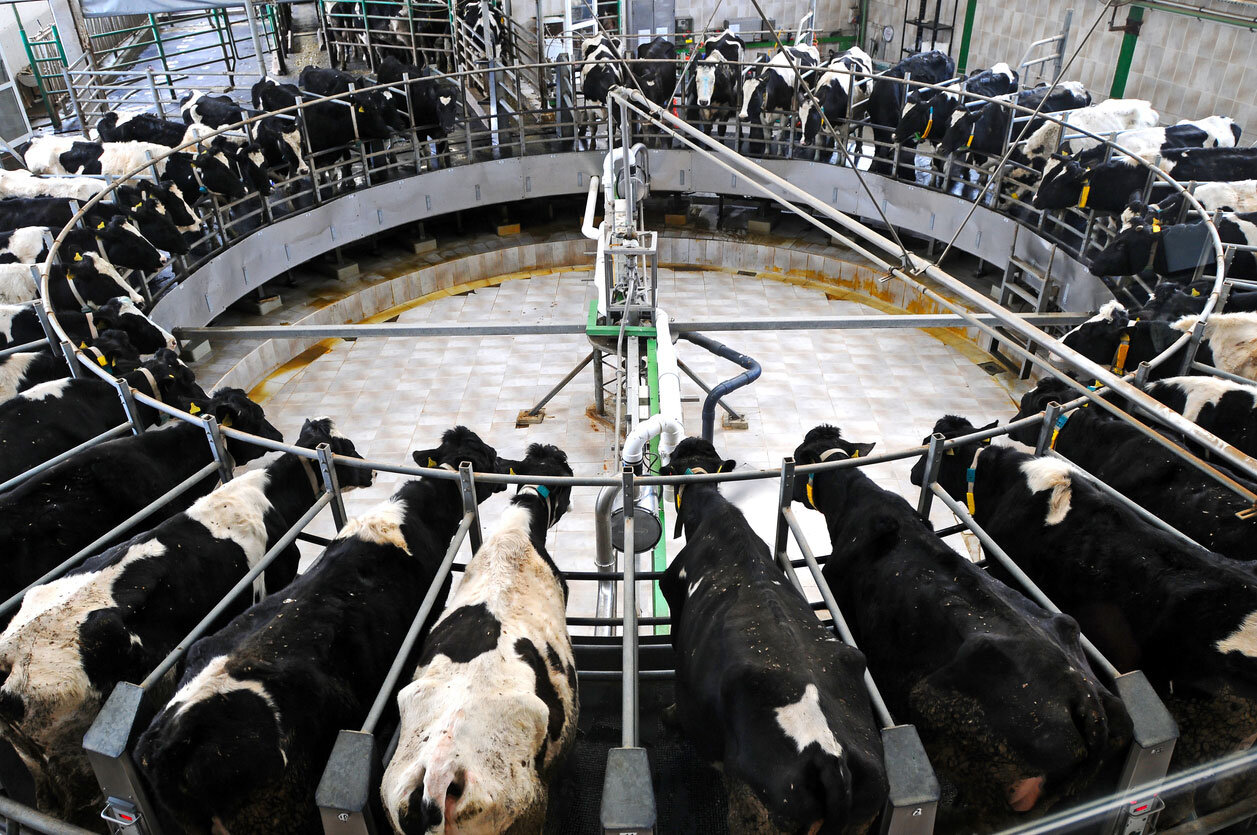Big Ag Moves to Shut Down Debate on Minnesota Mega-Dairy Expansion
Photo courtesy of iStock by Getty Images
Last week, seven corporate agriculture interest groups sued the Minnesota Pollution Control Agency (MPCA) to halt the extension of a public comment period on a proposed mega-dairy expansion in Winona County, MN. The suit highlights broader efforts by agribusiness to silence opposition from rural residents who speak out against large concentrated animal feeding operations in their communities.
Daley Farms of Lewiston wants to expand their dairy operation from 1,728 cows to 4,680, which requires a state permit. At its current size the farm technically exceeds county herd limits, but the operation was exempted from regulation through a grandfather clause.
The MPCA opened a 30-day public comment period to weigh community concerns and determine if the agency should conduct a full Environmental Impact Statement on the expansion. Due to the demands of harvest season, community members petitioned to extend this public comment period for another month; they received two more weeks.
Corporate agriculture interest groups including the Minnesota Farm Bureau, Minnesota AgriGrowth Council, and five commodity associations sued the MPCA on the grounds that the agency does not have the authority to extend the comment period and called for its immediate end. Last week, a judge ruled that the agency does indeed have this authority, and the comment period is still open.
“It was a strange suit, the operation at issue wasn’t even one of the plaintiffs,” explains Barbara Sogn-Frank, factory farming Policy Organizer for the Land Stewardship Project, whose members requested the longer comment period. “Corporate ag doesn’t want the public to weigh in, and so they keep working on trying to chip away at that.”
Across the country, rural residents are voicing concern about the environmental and economic impacts of increasingly large concentrated animal operations in their communities. In September and October alone, a Missouri community halted a large cattle feedlot expansion, a Wisconsin county put a temporary moratorium on livestock operations with over 1,000 animals, tribal leaders and Devils Lake residents in North Dakota came together to oppose a proposed hog farm, and a southern Minnesota community called for an Environment Impact Statement on a different proposed hog farm.
Community concerns range from water and air pollution, to increased traffic and decreased property values. For agricultural communities, safe drinking water is a particular worry. Agricultural runoff can seep through the ground and pollute aquifers. Ninety-nine percent of rural communities drink groundwater, and many households rely on private wells. A report by the Environmental Working Group found that small farming communities are more likely to have polluted drinking water and simultaneously less able to pay for water treatment programs.
In the case of Winona County, towns around Daley Farms already have elevated levels of nitrates in their drinking water near or above state-mandated maximums. The feedlot sits on sensitive geology with porous limestone that makes it more prone to sinkholes that could pull manure and other contaminants directly into underground aquifers.
The expansion would also strain the local water supply, as Daley Farms would use roughly 92 million gallons a year, nearly three times as much water as the nearest town.
Winona country residents are split in their opinions on Daley Farms. An MPCA hearing drew large public interest from both opponents and supporters of the expansion. “It can be conflicting and difficult for a community,” says Sogn-Frank. People “may really appreciate their neighbors who want to expand their operations, and understand their reasoning … but at the same time … when you’re talking about doubling your production of waste and doubling your use of water, you know no matter what plan is in place, that is going to have an impact. So it’s not easy for people.”
The lawsuit brought by the Minnesota Farmers Bureau, AgriGrowth Council, and Minnesota commodity associations including the Minnesota Milk Producers Association, Pork Producers Association, and Turkey Growers Association, demonstrates agribusiness intent to stifle these community debates. The suit claimed that the longer comment period harms Daley Farms by delaying their expansion.
This lawsuit is not the first instance of corporate ag groups maneuvering to limit public discussion on large farms. Eight states have passed ag-gag laws which criminalize recording or filming inside an animal facility without an owner’s permission. The nation’s first ag-gag bill passed in Iowa with the help of the Iowa Farm Bureau, Iowa Dairy Association, Monsanto, and others.
Big Ag groups have also passed state legislation that makes it harder to challenge farm expansions. The South Carolina Farm Bureau and the South Carolina Poultry Federation helped pass a bill in that state that limits citizens’ ability to challenge permits for large poultry houses. North Dakota and Missouri passed constitutional “right to farm” amendments that make it more difficult for residents to oppose large-scale farm expansions or regulate pollution on farms.
“Corporate ag knows that family farms, farming communities, rural communities, don’t want to see factory farms move in next door,” says Sogn-Frank.
What We're Reading
The Food and Environment Reporting Network broke down the rural midterm vote. While the GOP held strong in most rural precincts, Iowa was able to flip two red farm counties blue, “not by courting Big Ag but by showing up at grain elevators and listening to constituents’ gripes, whether about Trump’s trade war driving down soybean prices or corporate consolidation.”
The New Food Economy explained how cranberry farmers collectively restrict their supply to maintain prices that cover their cost of production. This year, though, that means destroying a fourth of the cranberry crop, or enough cranberries "to feed the entire country on Thanksgiving for three years.”
Over 200 food and farming organizations signed a letter in support of Senator Cory Booker (D-NJ) and Representative Mark Pocan’s (D-WI) Food and Agribusiness Merger Moratorium and Antitrust Review Act, which would temporarily pause large food and ag mergers in order to assess the impact of corporate consolidation on the food system.

